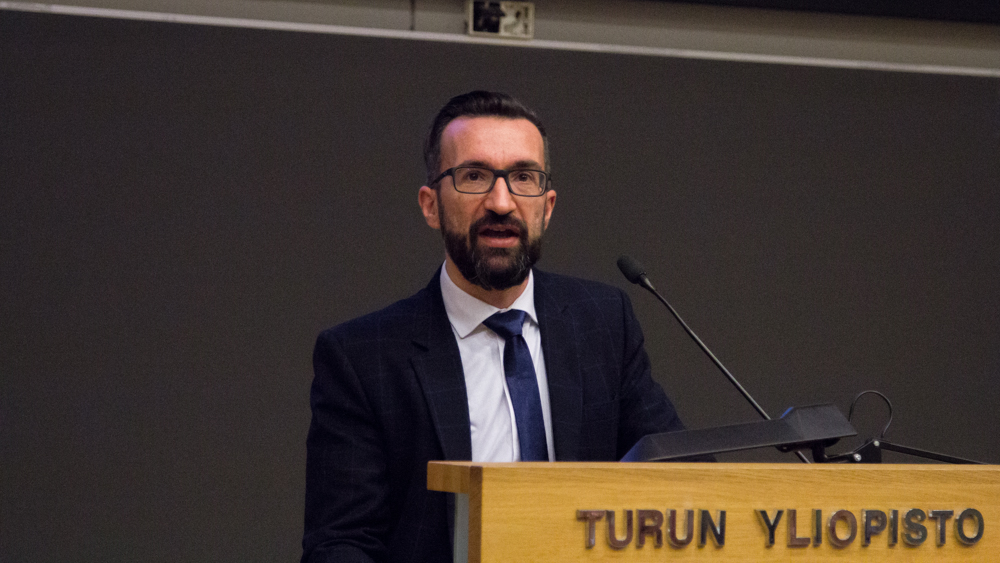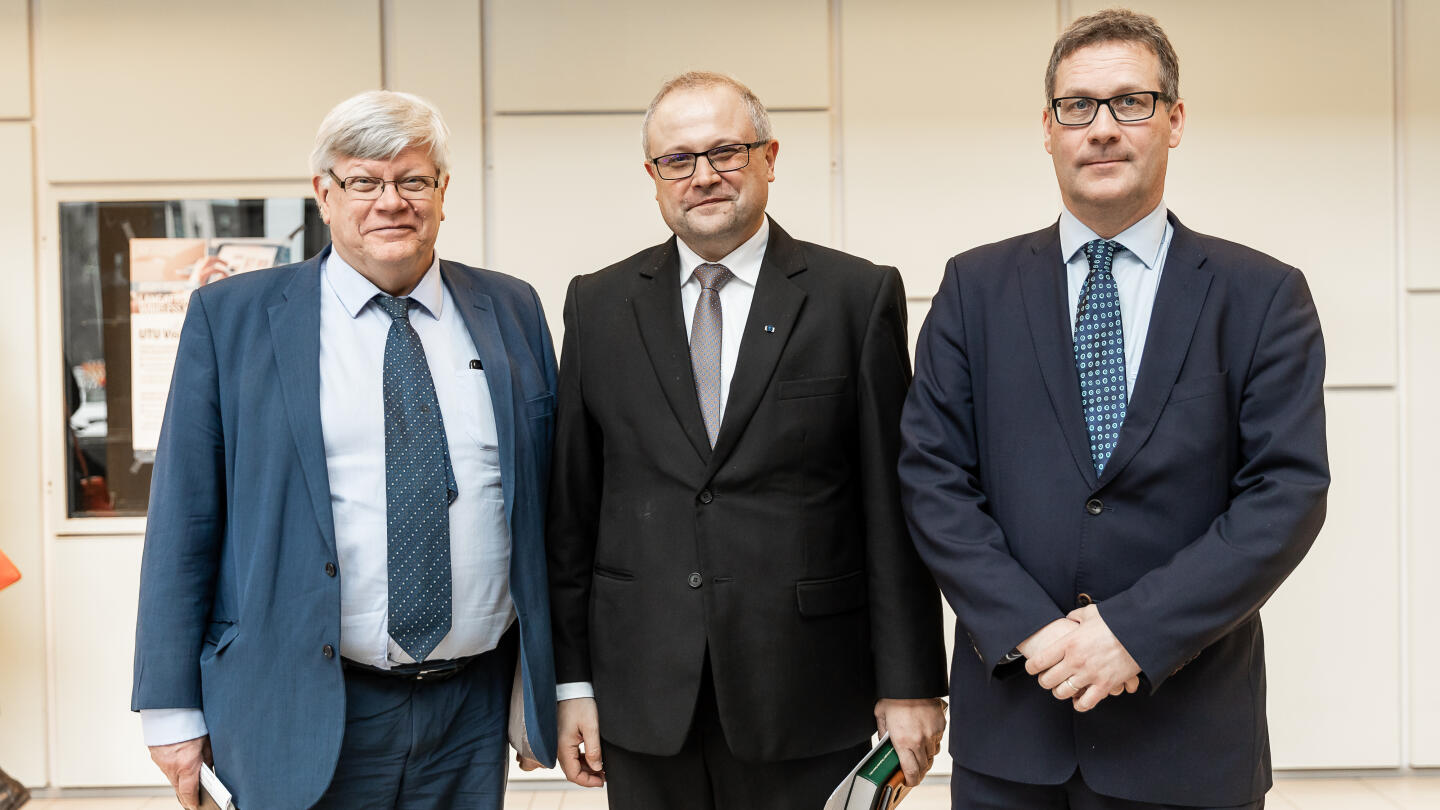European Ambassadors Gathered Together in Turku – Seminar Discussed Significance of Year 1918
Organised by the University of Turku and several Finnish embassies in European countries, a seminar on the year 1918 was held in Educarium on Thursday, 29 November. The 100th anniversary of the end of the First World War is celebrated this year.
The keynote speaker of the seminar, historian Alessandro Salvador working at the University of Siena, covered the year 1918 as the watershed of European history, but simultaneously as a part of a transformation process that started in 1914 and ended in the 1920s or 1930s depending on the interpretation.
– Talking about the significance of the year 1918 is not easy. It is often viewed as the year the First World War ended, even though it did not mark the end of the war everywhere. Several historians also believe that the starting year of the war can be questioned, as the Italo-Turkish war in 1911 and the Balkan Wars in 1912–1913 were so closely connected to the beginning of the world war, said Salvador at the beginning of his speech.
According to the historian, the wars of the early 1910s and above all the First World War triggered a process that had a major impact on both the winners and losers of the war.
– This was the beginning of an era of significant societal changes, but also several severe crises. Political violence did not end in 1918. Revolutions and local conflicts, including the Russian Civil War and the Turkish War of Independence, continued for years, and can be seen as a continuum of the war.
According to Salvador, the year 1918 offered the liberal democracies of the time the first real chance to show that they were able to resist authoritarian regimes and ensure peace and order to Europe.

– Unfortunately, the attempt failed as the contradictions of complex geopolitical and ideological goals could not be perceived well enough. The balance achieved in Europe after the Turkish War of Independence was weak and did not endure the blow caused by the economic depression the following decade that gave way to authoritarian regimes.
Towards the end of his lecture, Salvador illustrated the political situation of Europe at the time by stating that just before the Second World War, all new nation states that had come into existence during the First World War or immediately after, excluding Finland and Czechoslovakia, had authoritarian regimes.
Speeches by Ambassadors and Researchers from around Europe
The seminar was attended by ambassadors and researchers from several countries. The seminar was opened by a speech by Rector Kalervo Väänänen, which was followed by the speeches by Professor Vesa Vares, who also worked as the Chair, and Jaroslaw Suchoples, who had come up with the idea of the seminar. Suchoples, who is a historian by profession, concluded his speech by discussing the significance of the year 1918 for present-day Europe.
– What can we learn from the First World War? How can we utilise gained information in preventing future conflicts? Would the past generations have been able to foresee that the aftermath of the First World War would give rise to an even more massive military conflict? asked Suchoples.
After the introductions and keynote lecture, 14 experts gave their presentations on the First World War and its impact from the perspectives of the whole Europe and different countries.
The event included speeches from the perspectives of Belgium, Britain, Bulgaria, Italy, Croatia, Latvia, Lithuania, Poland, Romania, Germany, Serbia, Finland, and Hungary, as well as speeches on the diplomatic relations between Finland and France. The speakers included both ambassadors and historians.
During the seminar, there was a poster exhibition on the year 1918 on display in Educarium’s second floor lobby.
